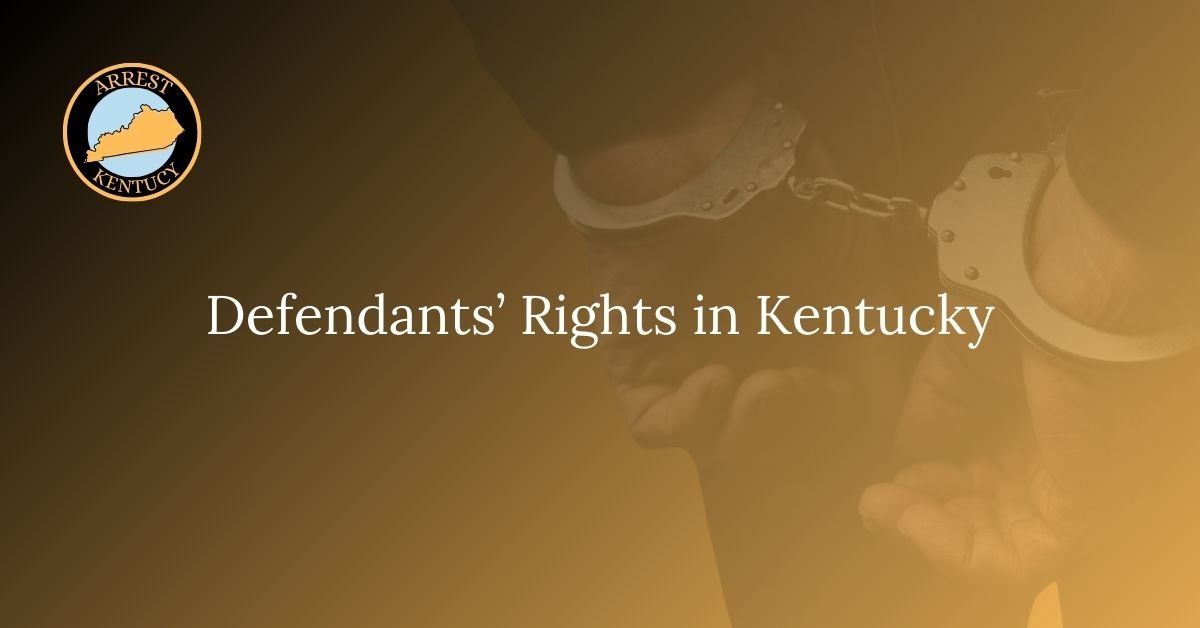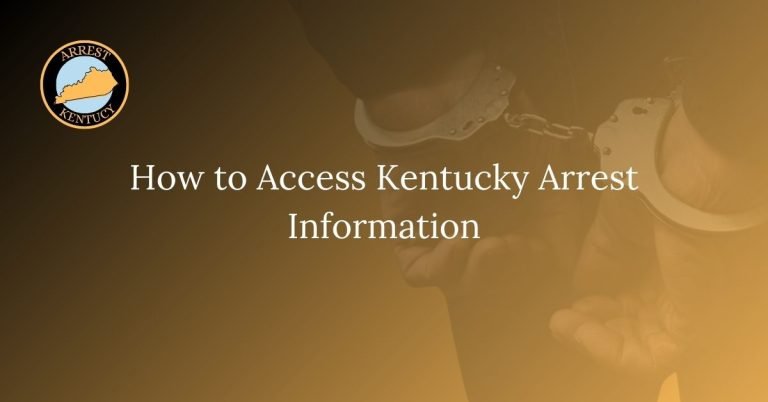Defendants’ Rights in Kentucky

Welcome to our comprehensive guide on “Defendants’ Rights in Kentucky.” Navigating the legal system can be daunting, especially if you find yourself facing criminal charges. Understanding your rights is essential for ensuring a fair and just legal process. This guide provides an overview of the key protections and rights afforded to defendants in Kentucky, helping you to be better prepared for your legal journey.
In this guide, we will explore the fundamental rights that safeguard defendants throughout their trial. Knowing these rights not only helps in securing a fair trial but also empowers you to assert your legal protections effectively. By understanding the various aspects of your legal rights, you can ensure that your trial is conducted justly and that you receive the proper legal defense.
Importance of Legal Protections
Understanding your legal rights is crucial to ensuring a fair trial and protecting yourself against potential injustices. Legal protections for defendants are fundamental to maintaining the integrity of the judicial system. They ensure that individuals accused of crimes are treated fairly and that the legal process is impartial. These rights prevent the misuse of power and safeguard defendants from potential abuses, ensuring that everyone receives a just opportunity to present their case. By being aware of these protections, you can navigate the legal system more effectively and uphold your rights throughout the proceedings.
Overview of Defendant Rights
This guide provides a comprehensive look at the specific rights granted to defendants in Kentucky. By detailing these rights, we aim to empower individuals involved in legal proceedings with the knowledge needed to navigate the complexities of the legal system. Understanding these rights is essential for asserting them effectively and ensuring a fair legal process. This awareness helps you to safeguard your interests and ensures that your trial is conducted according to the principles of justice.
Right to Legal Representation
In Kentucky, every defendant is entitled to legal representation, which is a fundamental aspect of the justice system. This right ensures that individuals facing criminal charges have access to expert legal advice and advocacy throughout their trial. The presence of an attorney is crucial in navigating the complexities of the legal system, ensuring that defendants can effectively present their case and defend themselves against charges. If a defendant cannot afford a private attorney, the court will appoint a public defender to ensure that everyone has access to legal representation, regardless of their financial situation.
Choosing Between a Public Defender and a Private Lawyer
Defendants in Kentucky have the option to choose between a public defender and a private attorney. Public defenders are appointed by the court to represent defendants who cannot afford to hire a private lawyer. This service ensures that those with limited financial resources still have access to legal representation. On the other hand, private attorneys are hired by individuals who can afford their services, offering potentially more personalized and focused legal support. Understanding these options allows defendants to make informed decisions about their representation, considering factors such as cost, expertise, and personal preference.
Right to Fair and Timely Trial
Defendants are guaranteed the right to a fair and timely trial, which is essential for ensuring justice. This right protects against undue delays and ensures that defendants have sufficient time to prepare their case and present a robust defense. A timely trial helps prevent prolonged pretrial detention and minimizes the impact of delays on the defendant’s life. It also ensures that the trial process is conducted efficiently, allowing for a fair examination of evidence and arguments. This right is fundamental to maintaining the balance between the defendant’s right to a fair trial and the efficient administration of justice.
Right to Remain Silent
The right to remain silent is a crucial protection for defendants, allowing them to avoid self-incrimination during interrogations and legal proceedings. This right is enshrined in the Fifth Amendment and ensures that defendants cannot be compelled to testify against themselves. By remaining silent, defendants protect themselves from potentially coerced confessions and statements that could be used against them in court. This protection is vital for preserving the fairness of the legal process and preventing individuals from being forced to incriminate themselves.
How to Exercise Your Right to Silence
Exercising the right to remain silent requires careful consideration and strategy. It is essential to communicate with law enforcement and the court through legal counsel to preserve this right effectively. Defendants should avoid making statements without first consulting with an attorney, as this can lead to unintended consequences. Seeking legal advice before making any statements ensures that defendants fully understand their rights and the potential implications of their words. This approach helps protect their interests and ensures that their legal defense remains strong and effective.
Right to Confront Witnesses
Defendants have the right to confront and cross-examine witnesses presented by the prosecution. This right is a fundamental aspect of a fair trial, allowing defendants to challenge the credibility and reliability of witness testimony. Cross-examination is a crucial tool for testing the accuracy of evidence and uncovering any biases or inconsistencies in the testimony. By exercising this right, defendants can strengthen their case and ensure that all evidence is thoroughly examined, contributing to a fair and just outcome.
Ensuring Trial Transparency
The ability to confront and cross-examine witnesses is vital for ensuring the transparency and fairness of the trial process. This right allows for a comprehensive examination of evidence and testimony, ensuring that the trial is conducted impartially. By allowing defendants to challenge witnesses, the legal system helps to uncover the truth and maintain the integrity of the judicial process. This transparency is essential for achieving a just and unbiased verdict, ensuring that all aspects of the case are thoroughly considered.
Right to Appeal
Defendants have the right to appeal a conviction or sentence if they believe that errors occurred during the trial that affected the outcome. The appeal process provides an opportunity to review the trial proceedings and address any legal mistakes or procedural issues that may have impacted the verdict. This right is essential for correcting potential miscarriages of justice and ensuring that the legal process remains fair and accurate. By understanding the appeal process, defendants can make informed decisions about challenging their convictions and seeking a proper resolution.
Understanding the Appeal Process
The appeal process involves specific procedures and limitations that defendants must follow. This process includes filing necessary paperwork, adhering to deadlines, and presenting arguments for why the trial’s outcome should be reviewed. Understanding these details is crucial for making informed decisions about pursuing an appeal and navigating the complexities of the appellate system. By being aware of the process and its limitations, defendants can better prepare for their appeal and increase their chances of achieving a favorable outcome.
Frequently Asked Questions
For detailed FAQs about defendants’ rights in Kentucky, please refer to the comprehensive section provided in this article.
What are Miranda rights?
Miranda rights are constitutional protections that include the right to remain silent and the right to an attorney during police interrogations. These rights apply when you are in custody and being questioned about a crime, ensuring you are informed of your protections to avoid self-incrimination and secure legal representation.
Can I refuse a search?
Yes, you can refuse a search of your property, such as your home or vehicle. Law enforcement typically needs a search warrant, your consent, or probable cause to conduct a search without a warrant. Refusing a search helps protect your privacy and ensures that evidence is collected lawfully.
What is a speedy trial?
The right to a speedy trial, guaranteed by the Sixth Amendment, ensures that you are not held in pretrial detention for an extended period. In Kentucky, this right requires the prosecution to bring your case to trial within a reasonable time frame following your arrest or indictment, helping to prevent unnecessary delays.
Can I represent myself in court?
You have the option to represent yourself in court, but it is generally not recommended due to the complexities of legal proceedings. You have the right to an attorney, and if you cannot afford one, the court will appoint a public defender. Legal representation is crucial for effectively navigating the legal process and ensuring a fair trial.
Can statements be used without Miranda rights?
Statements made during custodial interrogation without being informed of Miranda rights may be inadmissible in court. However, other evidence obtained legally can still be used against you. Understanding this protection helps safeguard your rights during legal proceedings.
Can I be held without bail?
Yes, certain offenses may result in pretrial detention without bail, such as capital crimes or cases involving a high risk of flight. For most cases, defendants are entitled to reasonable bail under the Eighth Amendment, which helps ensure that they are not held excessively before trial.






